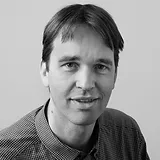
Arjan Diepstra
dr.
As a hematopathologist, I work on diagnostics of all types of hematological malignancies using a comprehensive panel of different techniques. Moreover, my main research interest involves Hodgkin lymphoma, with a strong focus on interactions between tumor cells and the microenvironment. In addition, I also have a long standing interest in genetic susceptibility. My areas of expertise are: immunology, tumor cell biology, genetic association studies and molecular diagnostics in pathology. I actively participate in international (EORTC) and national (HOVON) clinical trials.
Latest publications
(216)
Activities
(38)
Press/Media
(7)
Prizes
(4)
Datasets
(1)
Supervised work
(12)

Expression of interleukin-6 in synovial tissue of patients with polymyalgia rheumatica
Published in: Annals of the Rheumatic Diseases
Access to document
10.1136/ard-2022-222873
document
The value of thymus and activation related chemokine immunohistochemistry in classic Hodgkin lymphoma diagnostics
Published in: Histopathology
Access to document
10.1111/his.14836
document
Aims: Classic Hodgkin lymphoma (cHL) should be distinguished from its wide variety of histological mimics, including reactive conditions and mature B and T cell neoplasms. Thymus and activation-related chemokine (TARC) is produced in extremely high quantities by the Hodgkin/Reed–Sternberg (HRS) tumour cells and is largely responsible for the attraction of CD4+ T cells into the cHL tumour micro-environment. In the current study we evaluated the diagnostic potential of TARC immunohistochemistry in daily practice in a tertiary referral centre in the Netherlands. Methods and results: A total of 383...
CD4+ T cells in classical Hodgkin lymphoma express exhaustion associated transcription factors TOX and TOX2: Characterizing CD4+ T cells in Hodgkin lymphoma
Published in: OncoImmunology
Access to document
10.1080/2162402X.2022.2033433
document
In classical Hodgkin lymphoma (cHL), the highly abundant CD4+ T cells in the vicinity of tumor cells are considered essential for tumor cell survival, but are ill-defined. Although they are activated, they consistently lack expression of activation marker CD26. In this study, we compared sorted CD4+CD26- and CD4+CD26+ T cells from cHL lymph node cell suspensions by RNA sequencing and T cell receptor variable gene segment usage analysis. This revealed that although CD4+CD26- T cells are antigen experienced, they have not clonally expanded. This may well be explained...
Johanna Veldman, Jessica Rodrigues Placa, Lauren Chong, Miente Martijn Terpstra, Mirjam Mastik, Leon C. van Kempen, Klaas Kok, Tomohiro Aoki, Christian Steidl, Anke van den Berg, Lydia Visser, Arjan Diepstra
Hand dexterity, daily functioning and health-related quality of life in kidney transplant recipients
Published in: Scientific Reports
Access to document
10.1038/s41598-022-19952-5
document
Impaired interplay between sensory and motor function may be an important, often overlooked cause of the decreased daily functioning and impaired health-related quality of life (HRQoL) of kidney transplant recipients (KTR). We assessed this interplay using a hand dexterity test, and investigated its potential associations with daily functioning and HRQoL among KTR enrolled at the TransplantLines Biobank and Cohort Study. A total of 309 KTR (58% male, mean age 56 ± 13 years) at median 4 [IQR: 1–11] years after transplantation were included. Impaired hand dexterity, as defined by...
TransplantLines Investigators, Tim J. Knobbe, Daan Kremer, Michele F. Eisenga, Eva Corpeleijn, Coby Annema, Joke M. Spikman, Gerjan Navis, Stefan P. Berger, Stephan J.L. Bakker
Prognostic value of TARC and quantitative PET parameters in relapsed or refractory Hodgkin lymphoma patients treated with brentuximab vedotin and DHAP
Published in: Leukemia
Access to document
10.1038/s41375-022-01717-8
document
Risk-stratified treatment strategies have the potential to increase survival and lower toxicity in relapsed/refractory classical Hodgkin lymphoma (R/R cHL) patients. This study investigated the prognostic value of serum (s)TARC, vitamin D and lactate dehydrogenase (LDH), TARC immunohistochemistry and quantitative PET parameters in 65 R/R cHL patients who were treated with brentuximab vedotin (BV) and DHAP followed by autologous stem-cell transplantation (ASCT) within the Transplant BRaVE study (NCT02280993). At a median follow-up of 40 months, the 3-year progression free survival (PFS) was 77% (95% CI: 67–88%) and the overall...
HOVON Lunenburg Lymphoma Phase I/II Consortium (LLPC), Julia Driessen, Marie José Kersten, Lydia Visser, Anke van den Berg, Sanne H. Tonino, Josée M. Zijlstra, Pieternella J. Lugtenburg, Franck Morschhauser, Martin Hutchings, Sandy Amorim, Thomas Gastinne, Marcel Nijland, Gerben J.C. Zwezerijnen, Ronald Boellaard, Henrica C.W. de Vet, Anne I.J. Arens, Roelf Valkema, Roberto D.K. Liu, Esther E.E. DreesDaphne de Jong, Wouter J. Plattel, Arjan Diepstra